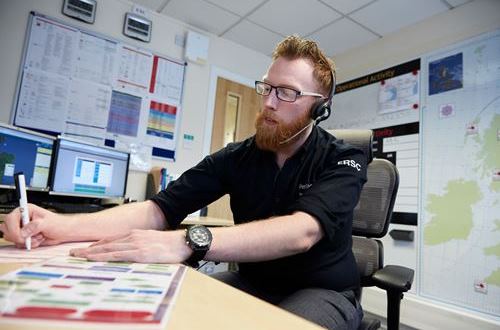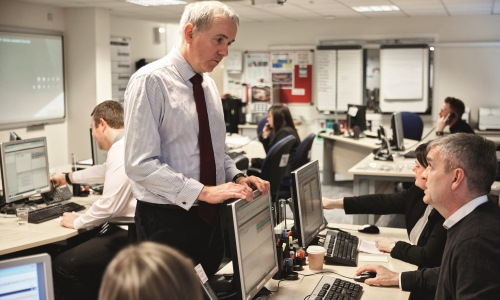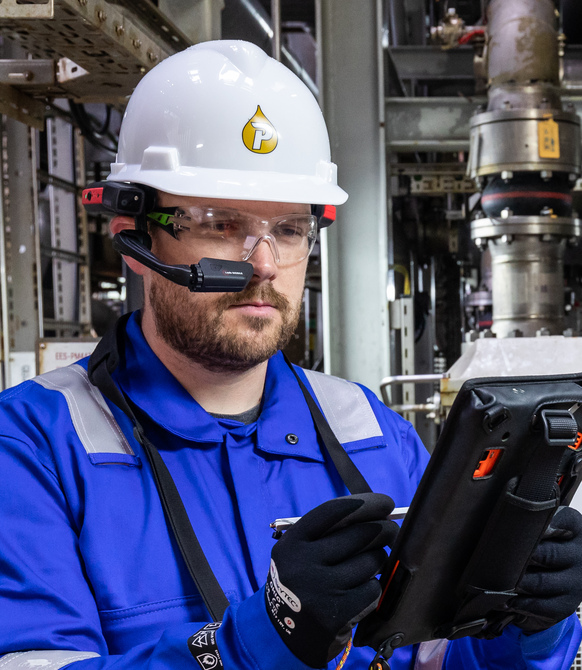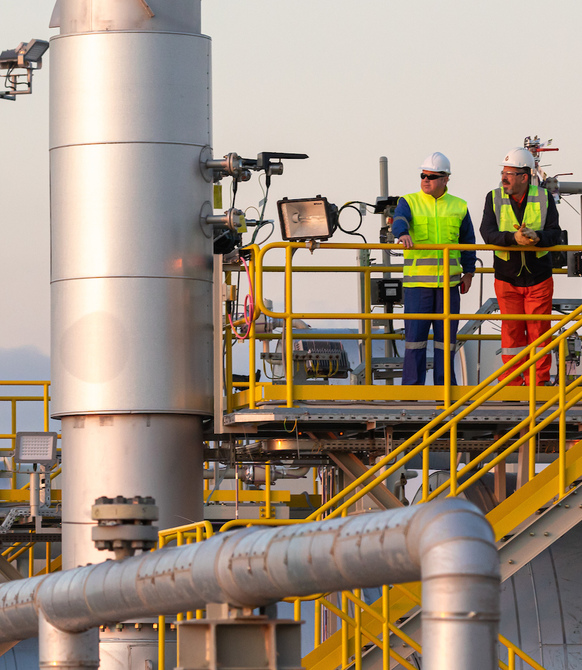13 July 2016
Taking the call
24 hours-a-day, 7 days-a-week, 365 days-a-year – the Emergency Response Service Centre (ERSC) is always on call.
The ERSC provides response facilities and onshore personnel to oil and gas operators, drillers, vessels and onshore terminals in the event of an emergency in the North Sea.
Based at Aberdeen harbour, the centre responds to multiple calls every month in relation to muster drills, exercises and real incidents. It deals with all sorts of incidents which have the potential to escalate to a crisis.
To respond effectively requires a controlled and prepared environment, with tried and tested systems and procedures. But most importantly, it needs skilled and capable personnel, able to act calmly under pressure.
So, how does it feel to be the Emergency Response Operator (ERO), the first point of contact when a call comes in? We talked to two experienced EROs, Jo Mitchell and Mark McCusker, to find out more.
The ‘golden hour’
The phone call marks the start of the ‘golden hour’ – the 60-minute period from a call coming in to when an emergency response is in full flow.
“We’re contractually bound to answer the emergency phone within six rings to ensure the incident site receives immediate support”, explains Jo. “When a call comes in, it’s most often from the Radio Operator based offshore. If it’s an Offshore Installation Manager (OIM), we know pretty much straight away that we are dealing with a more serious incident.”

Responding to calls is a highly systemised process. The precise steps will depend on what response the client prefers; the ERSC maintains flow charts and procedures specific to each client so that the ERO knows who to phone to form the client’s onshore response team.
The next step, where necessary, involves mobilising the onshore Incident Management Team (IMT). Calls are normally made to a Petrofac Training Services Emergency Coordinator and the client’s Duty Manager. Once the client decides to mobilise the team, or if the incident site has requested the team directly, it’s a case of getting everybody on hand to help. At this stage, the ERO is likely to be doing three or four things at the same time. As Mark notes, “while we are well trained, it can be quite demanding.”
Managing the response
While mobilising the team, EROs also set up the emergency response room, which has computers and folders specific to each role and client. They make sure everything is ready so that when people arrive and log on they can have immediate access to the incident details. The IMT is then briefed by the Emergency Coordinator and provided actions to initiate support to the incident site.
The two EROs on shift will then split their responsibilities. One will typically take the role of Action Keeper while the other will organise Logistics. The Action Keeper role includes supporting the Emergency Coordinator with action tracking, ensuring the team is fully supported both technically and within the ERSC environment and remaining alert to any external communication.

The Logistics ERO supports the affected site and becomes the point of contact for external and internal logistics. This involves tracking personnel movements at the site and making the necessary mobilisation arrangements, such as organising replacement standby helicopters or sourcing vessels to take remotely operated vehicles out to the scene.
One of the most important roles of the ERSC is to generate lessons learned for the industry, and to act as the custodian of incident information. For the EROs, this means being involved in a wash-up session soon after the incident has ended.
The value of experience
So what makes a good ERO? It’s clearly a demanding role, and every day is different. All those involved emphasise the need to be organised, calm and prepared to deal with any eventuality when answering an emergency call or when listening to the crackled radio reception from the helicopter. Clarity and attention to detail are essential. Taking the information down incorrectly can have a huge impact.
Mark emphasises the importance of teamwork: “You have to get along with your shift partner, and support each other. Training and experience are vital, and we are regularly involved in exercises which helps us to stay up to speed.”
Jo agrees about the value of experience: “I used to have that moment of panic when the phone rang and when you start in the job it’s a bit daunting. But once you are trained and settle into the role, you become familiar and efficient with what to do and how to respond. I’m proud to be part of the service delivered by the ERSC.”








